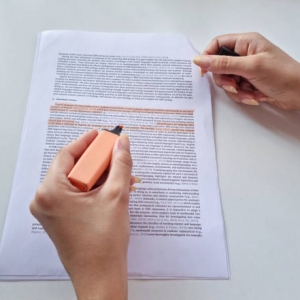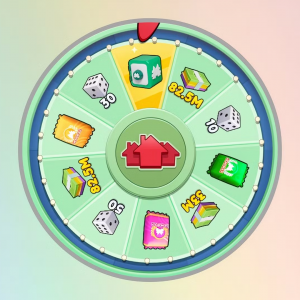Homework is a vital part of academic success, but procrastination often makes it difficult to start and complete assignments on time. Many students know the feeling of staring at a blank page, convincing themselves they’ll “start in five minutes,” only to waste hours scrolling through social media, chatting with friends, or finding endless distractions. Over time, these habits can hurt grades, increase stress, and reduce confidence in learning abilities.
The good news is that procrastination isn’t an unchangeable trait it’s a habit that can be managed with the right strategies. This blog will explore proven techniques to help you write homework without procrastination and build a more productive study routine.
Why Students Procrastinate on Homework
Before solving the problem, it’s essential to understand why procrastination happens. Common reasons include:
1. Fear of Failure
Students often delay starting assignments because they worry they won’t perform well. This fear creates anxiety, which makes the task feel overwhelming.
2. Lack of Motivation
When homework feels boring, irrelevant, or too difficult, motivation decreases. Without a clear purpose, students may push it aside for more enjoyable activities.
3. Perfectionism
Some students believe they must write perfectly from the start. This mindset causes unnecessary stress and leads to delays in beginning the task.
4. Poor Time Management
Without a proper schedule, assignments pile up. Students misjudge how long tasks will take and end up rushing at the last minute.
5. Distractions
Phones, social media, television, and even noisy surroundings can prevent students from focusing.
By identifying these root causes, students can implement strategies to overcome procrastination and write homework more effectively.
Strategies to Write Homework Without Procrastination
1. Break Homework into Manageable Tasks
Large assignments feel intimidating. Instead of thinking, “I have to finish this whole essay today,” break the task into smaller steps: research, outline, draft, edit, and proofread. This approach reduces pressure and makes the work more approachable.
2. Use the Pomodoro Technique
The Pomodoro Technique involves working in focused 25 minute sessions followed by a 5 minute break. After four cycles, take a longer break. This method trains the brain to focus, prevents burnout, and makes the workload feel less overwhelming.
3. Eliminate Distractions
Create a study environment that promotes concentration. Turn off notifications, put your phone in another room, and let your friends or family know you need uninterrupted time.
4. Set Specific Goals
Instead of vague goals like “do math homework,” be precise: “Complete five algebra problems” or “write 300 words of my essay.” Clear goals provide direction and help track progress.
5. Reward Yourself After Completion
Incentives keep motivation high. After completing a task, treat yourself with something enjoyable like a snack, short walk, or watching your favorite show.
6. Use Accountability
Share your study goals with a friend, family member, or study group. Being accountable to someone else makes you more likely to stay on track.
7. Start with Easy Tasks
If you’re feeling stuck, begin with a simple task. Completing smaller assignments builds momentum and creates confidence to tackle bigger projects.
8. Change Your Mindset
View homework as an opportunity to learn, not a burden. Shifting perspective can reduce resistance and make the process more engaging.
Time Management Techniques to Beat Procrastination
Good time management is the foundation of productivity. Here are some strategies students can use:
Prioritize Tasks with the Eisenhower Matrix
-
Urgent and Important: Do these immediately.
-
Important but Not Urgent: Schedule these for later.
-
Urgent but Not Important: Delegate if possible.
-
Neither: Eliminate them.
Use a Homework Planner
Tracking assignments with a planner or digital app ensures you never miss deadlines. Write down due dates and break tasks into smaller daily actions.
Apply the Two Minute Rule
If a task takes less than two minutes like gathering materials or opening a book do it immediately. This helps you build momentum and reduces small procrastination habits.
Establish a Routine
Consistency is powerful. Designate specific times each day for homework. Over time, your brain will adapt, and starting will feel natural.
Psychological Hacks to Stay Motivated
Sometimes procrastination stems from mindset rather than workload. These techniques can help:
Visualize the Outcome
Picture how relieved you’ll feel once the homework is complete. Positive visualization can provide the push you need to start.
Reframe Difficult Tasks
Instead of thinking, “This assignment is impossible,” try, “This is a chance to improve my skills.” Reframing reduces stress and improves confidence.
Use Self Talk
Encouraging words like, “I can do this” or “I only need to work for 20 minutes” make tasks feel less overwhelming.
Track Progress
Checking off completed tasks gives a sense of accomplishment and motivates you to keep going.
Building Long Term Habits Against Procrastination
Beating procrastination isn’t just about short term tricks it’s about building lasting habits.
1. Stay Organized
Keep your study space clean, use folders for different subjects, and store digital files neatly. Organization reduces time wasted searching for materials.
2. Improve Study Skills
When students lack skills, homework feels harder. Learning note taking methods, time management strategies, and subject specific techniques makes assignments easier.
3. Seek Help When Needed
If a subject feels overwhelming, don’t hesitate to ask teachers, tutors, or online resources for guidance. For instance, students struggling with science topics can benefit from physics Homework Services that provide expert assistance.
4. Monitor Energy Levels
Work when you’re most alert some students prefer mornings, while others focus better at night. Aligning homework with peak energy levels improves efficiency.
5. Build Discipline Through Consistency
The more often you start homework on time, the easier it becomes. Consistent practice strengthens self discipline and reduces resistance.
How Parents and Teachers Can Help Students
Procrastination is common among students, but guidance from adults can make a big difference.
-
Parents can create supportive environments by encouraging routines, reducing distractions at home, and offering praise for effort.
-
Teachers can assign meaningful homework, provide clear instructions, and teach students effective study techniques.
By working together, parents and teachers can help students build confidence and reduce the urge to delay assignments.
Final Thoughts
Learning how to write homework without procrastination is about developing better habits, managing time effectively, and adopting a healthier mindset toward academic tasks. Procrastination doesn’t have to control your productivity it can be replaced with discipline, focus, and motivation.
With strategies like breaking tasks into smaller steps, using the Pomodoro Technique, eliminating distractions, and rewarding yourself after completion, you can gradually overcome the cycle of delay. Over time, consistent practice will not only improve your homework routine but also enhance your overall academic success.
Homework doesn’t have to be a source of stress. With the right mindset and tools, you can transform it into an opportunity to grow, learn, and achieve your best.










